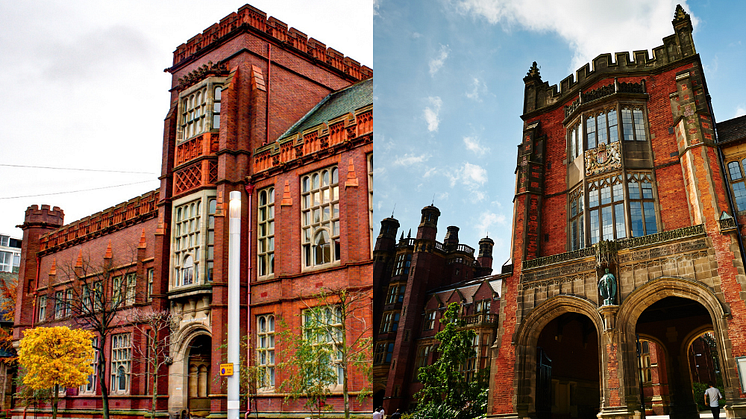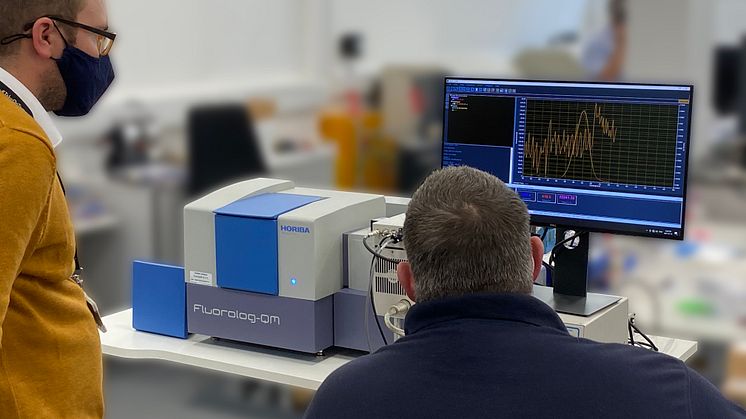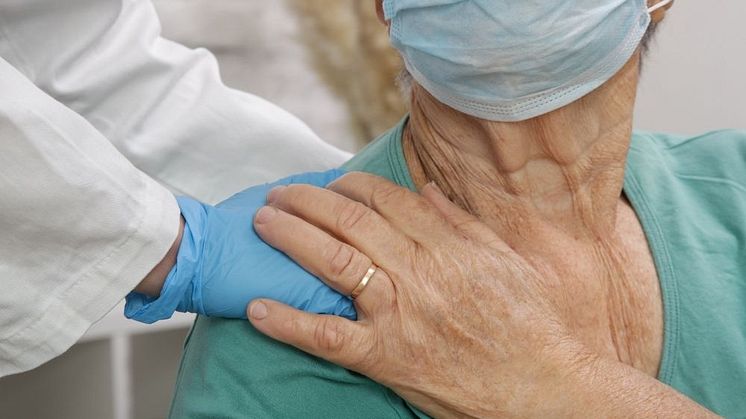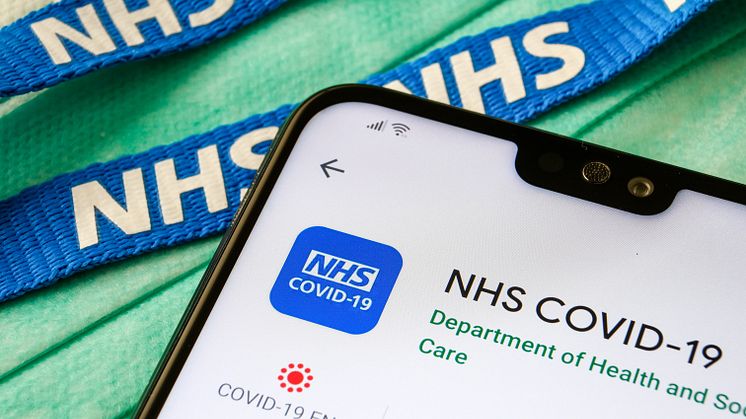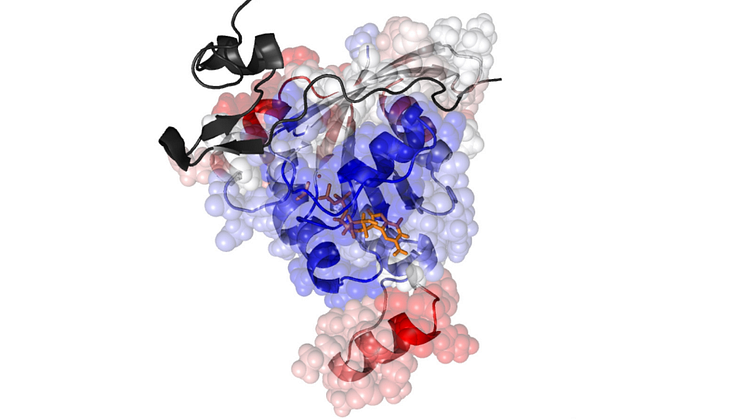
Press release -
Vital research for end-of-life care
Academics at Northumbria University, Newcastle, are evaluating Rapid Response Services to improve end-of-life care in new research funded by Marie Curie.
When people reach the end of their lives, it is important that they can choose their place of death. This could be at home, surrounded by friends and family, in a hospice or perhaps in hospital.
However, consistent evidence has shown that there is a mismatch between people’s preferences for where they would like to die and their actual place of death.
Research indicates that the majority of people would prefer to die at home; yet, prior to the pandemic, nearly half of deaths took place in hospitals.
Fulfilling patient preferences for dying at home depends on the appropriate support and care being available in the community. Rapid Response Services are one way of enabling people to die at home – but there has been very little research about their effectiveness for patients, carers and the cost implications of these services.
There is therefore a need to better understand what people require at the end of their lives, when they need it and how health and social services can support them. To address some of the gaps in research, academics from Northumbria University are conducting a much-needed study to evaluate Rapid Response Services.
Funded by Marie Curie, the two-year project will enable the team to make recommendations regarding further implementation of Rapid Response Services. This will help to influence policy and the ways in which end-of-life care is commissioned, planned and delivered.
Professor of Nursing Amanda Clarke, who is co-leading the research, said: “It is essential that the services delivering end-of-life care are available at a time and place when the patient and their family need support. Contributing to the evidence that shows us how best to do this is of great importance; we have just one chance to get it right at the end of people’s lives.”
Sabine Best, Head of Research at Marie Curie, said: “For every person we care for at the end of their life, there are many more missing out on the conversations, support and care they rightly deserve. We know that the most important knowledge gap in palliative and end of life research is about how to best provide palliative care outside of working hours, avoiding crises, and helping people stay in their place of choice. This research will help us gain a better understanding of the part Rapid Response Services play in end of life care and enable us to make recommendations and influence change where it is so vitally needed.
“For those who die within the community, we must ensure there is suitable care and support available and sadly the pandemic has indicated this isn’t always the case. We know that a negative end of life experience has a detrimental impact to those left behind and can make an already challenging time in someone’s life, even harder to get through.”
Gaining a better understanding
As part of the new study, the team will evaluate two different Rapid Response Services in the North of England, to find out if and how each service helps patients and their families, how they work with other community teams and the costs of the services for the NHS.
By looking at contrasting approaches to these services, the team will be able to highlight what works best, for who, in what circumstances and why.
The researchers will conduct interviews and focus groups to ask staff involved in delivering end-of-life care how the service supports people and, importantly, they will speak to carers and patients about their experiences of using the service and whether it has made a difference to them and, if so, in what way.
A growing need, intensified by the pandemic
The demand for palliative and end-of-life care was already set to increase rapidly, with the country’s ageing population meaning more people are living for longer with multiple and complex conditions, but the Covid-19 pandemic has exacerbated the need for evidence-based solutions for end-of-life care.
While the number of people dying at home has increased significantly since the onset of the pandemic, survey results published by Marie Curie in April 2021 suggested that as many as 76% of people whose loved one died at home during the pandemic felt they were not offered all the care and support they needed as carers.
In addition, recent research by Public Health England shows that existing health and social inequalities have continued or even worsened during the pandemic, for example amongst people over the age of 80, men and certain ethnic groups.
The research team will therefore also examine the impacts of the Covid-19 pandemic on Rapid Response Services. The findings should enable a better understanding about how to develop Rapid Response Services to support patients and their carers during the pandemic and beyond.
Project Co-lead Dr Joanne Atkinson, Head of the Department of Social Work, Education and Community Wellbeing, said: “Covid-19 has seen death and dying placed at the forefront of our consciousness. We need to make a difference in meaningful ways, evaluating Rapid Response Teams in end-of-life care allows us to explore how we support people to die in their own homes in familiar surroundings, beside the people that matter to them.”
- Ends –
Notes to editors:
The research will look at two different Rapid Response Services. In North East England, there are two different Rapid Response services, in two different NHS Trusts, and these services both use different models to deliver care.
One service, North Durham Marie Curie Rapid Response Service (DRRS), works in partnership with District Nurse teams and is linked to palliative care; this provides a 7-day, 24-hour service.
The other is Northumbria Healthcare NHS Foundation Trust Rapid Response Service (NRRS). This service is part of an integrated specialist palliative care team linked to District Nurse teams and provides a 7-day, 9am-10pm service.
About Northumbria University
Northumbria University, Newcastle is a research-rich, business-focused, professional university with a global reputation for academic excellence.
Northumbria is one of the largest universities in the UK with more than 30,000 students from over 130 countries
About Marie Curie
Marie Curie is the UK's leading end of life charity. The charity provides essential frontline nursing and hospice care for people with any terminal illness, a free support line and a wealth of information and support on all aspects of dying, death and bereavement. It is the largest charity funder of palliative and end of life care research in the UK. Marie Curie is committed to sharing its expertise to improve quality of care and ensuring that everyone has a good end of life experience. Marie Curie is calling for recognition and sustainable funding of end of life care and bereavement support.
National Day of Reflection - 23 March
An opportunity for the Nation to reflect, remember and celebrate the lives of everyone that died during the pandemic – from Covid and other causes. The charity believes it is important to talk more openly about dying, death and bereavement to improve experiences at end of life and to help reduce the lasting effects of grief.
Please note we are 'Marie Curie' (not 'Marie Curie Cancer Care')
Topics
Categories
Northumbria is a research-rich, business-focused, professional university with a global reputation for academic excellence. Find out more about us at www.northumbria.ac.uk --- Please contact our Media and Communications team at media.communications@northumbria.ac.uk with any media enquiries or interview requests ---








